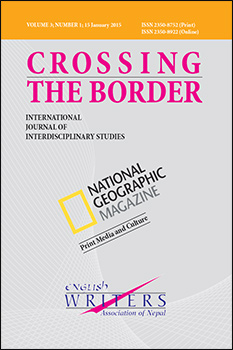Reforms and Changes in Nepal: Political-Sociological Perspectives on State Restructuring Process in the Post-Democratic Period
DOI:
https://doi.org/10.3126/ctbijis.v3i1.14093Keywords:
Oligarchy, civil society, rhetoric, transition, political marginalizationAbstract
Transitions, by definition, bring changes and the 1951, 1979-80, 1990 and 2006 transitions in Nepal were changes towards democracy. But all transitions before 2006 did not herald major inclusive reforms. Pedestal on the perspectives of Political Sociology, this article argues that political actors, including parties, pressure groups and social movements, operate within a wider social contexts and issues. The socio-political formation of the modern Nepali state is extremely bucolic and power centric hence who rules is a vital concern in Nepal. Political actors inevitably rule, shape, and in turn are shaped by blistering issues faced by the society. Issues as State restructuring often becomes a blistering controversial issue when a country is going federal on the basis of desegregation. Nepali society is extremely diverse and complex hence steps forward in Nepal is possible only from macro perspective which could be a yardstick in developing the Nepali society. As Nepal is a state of many nationalities, hence in post republican State restructuring in Nepal, not xenophobia but positive protests, civil society and political parties /opposition and factual devotion will provide the common bond of harmony in variety. In the process, the affects of public opinion, civic society, ideologies and social tendencies outside of the formal institutions of political power remains decisive.
Crossing the Border: International Journal of Interdisciplinary Studies
Vol.3(1) 2015: 81-98

